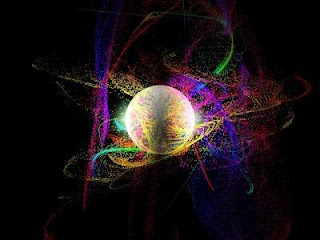Researchers succeeded in maintaining quantum superposition at room temperature for 39 minutes,which is a huge improvement over the previous record of 2 seconds.
A Canadian-led team of researchers has created a key component of a quantum compute, which might be possible to store quantum bits of data, known as "qubits", even at room temperature, for a practical length of time and potentially paving the way towards building one of the first practical ultra-fast quantum computers
Mike Thewalt, a physics professor at Simon Fraser University in Burnaby, B.C., author of the paper published Thursday online in the journal Science said: Such ideas have been "really sort of pie in the sky because no one has a qubit that can last long enough."
In the experiment, the team raised the temperature of a system, made out of phosphorus atoms embedded in a very pure silicon crystal, from -269 degrees Celsius to 25 degrees Celsius. They then demonstrated that the superposition states survived at 25 degrees Celsius for 39 minutes- outside of silicon, the previous record for such a state's survival at room temperature was approximately two seconds.
The researchers were even able to manipulate the qubits as the system's temperature increased.
"39 minutes may not seem very long but as it only takes one-hundred-thousandth of a second to flip the nuclear spin of a phosphorus ion - the type of operation used to run quantum calculations - in theory over 20 million operations could be applied in the time it takes for the superposition to naturally decay by one percent. Having such robust, as well as long-lived, qubits could prove very helpful for anyone trying to build a quantum computer," said Stephanie Simmons of Oxford University's Department of Materials, co-author of the paper.
"This opens up the possibility of truly long-term coherent information storage at room temperature," said Thewalt.
Quantum computers
Unlike binary, "0" or "1" that form all of our traditional computational communications, quantum computing encode data as "qubits", which have the unique ability to exist in various different quantum states simultaneously, known as "superposition".
However, for a qubit to be operative, it needs to withstand superposition for a long period of time-one way of extending the life of a qubit is by using very low temperatures, but this is impractical, which is what makes this new sustained state at room temperature a significant breakthrough to develop quantum computers.
The team prepared their sample at -269 degrees Celsius before it was placed in a magnetic field, with additional magnetic field pulses used to create the superposition of magnetic spins in the phosphorus nuclei, meaning the nuclei are in multiple states simultaneously.
At the coolest temperature, the nuclear spins of about 37 per cent of the ions remained in their superposition state for three hours. The same fraction survived for 39 minutes when the temperature of the system was raised to 25 degrees Celsius.
"These lifetimes are at least ten times longer than those measured in previous experiments," said Simmons. "We've managed to identify a system that seems to have basically no noise. They're high-performance qubits."
Source: CBC News










No comments :
Post a Comment